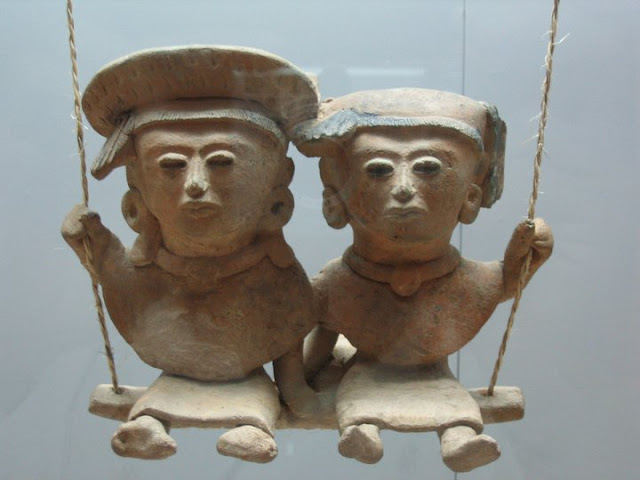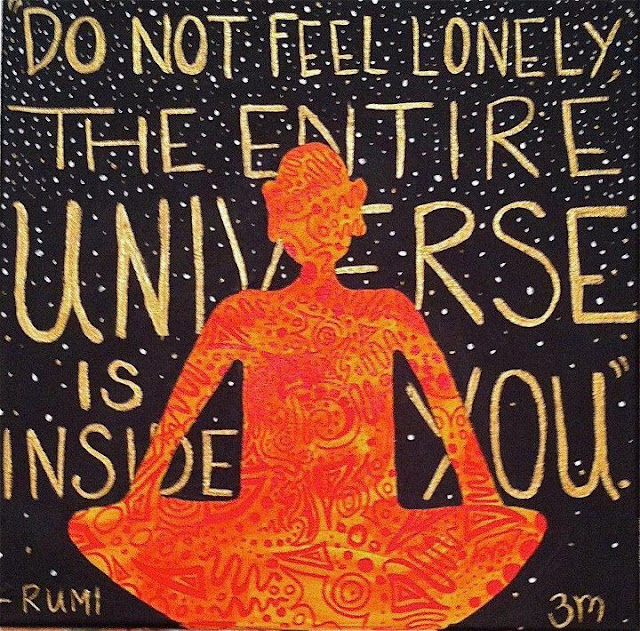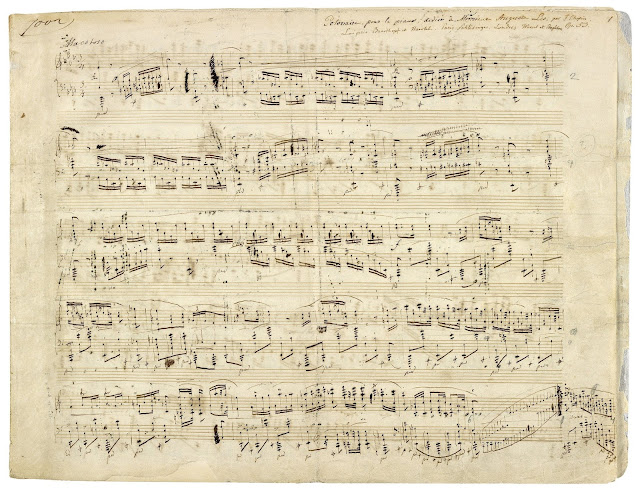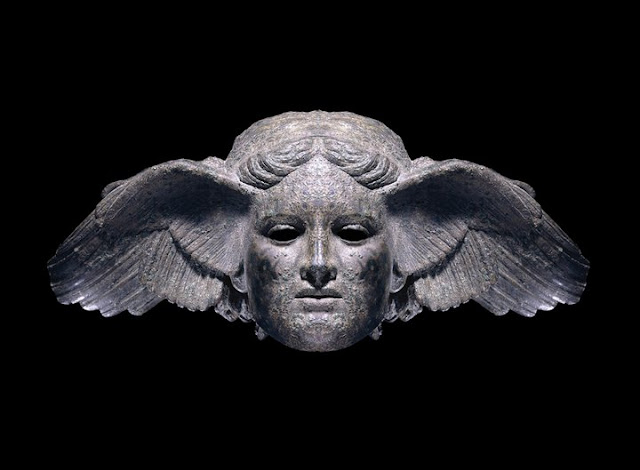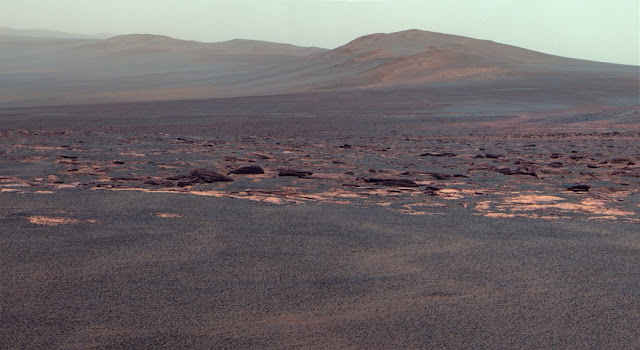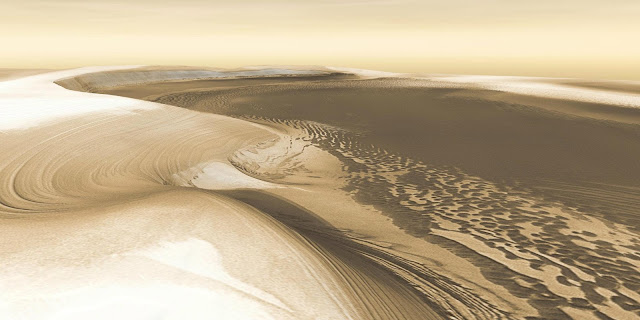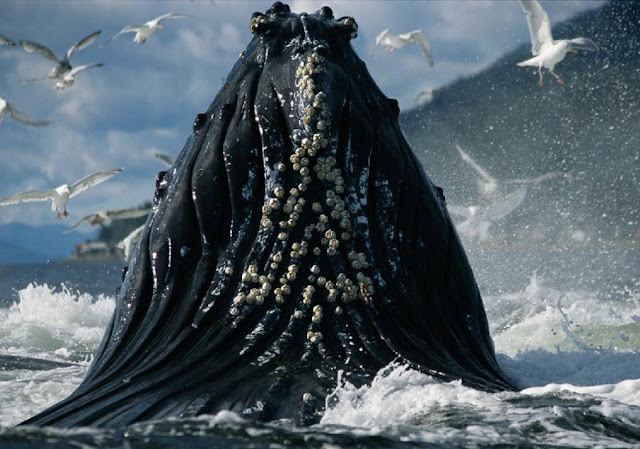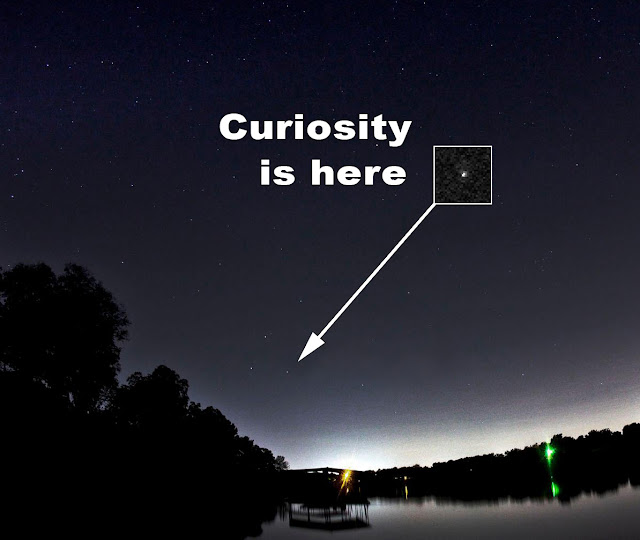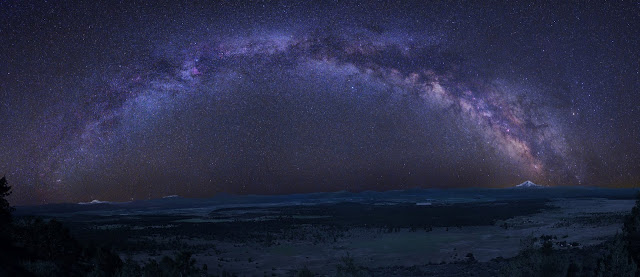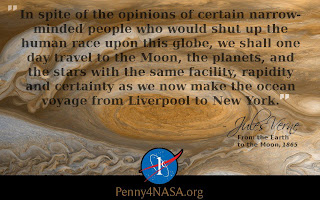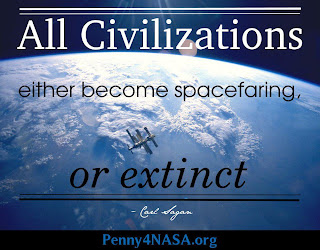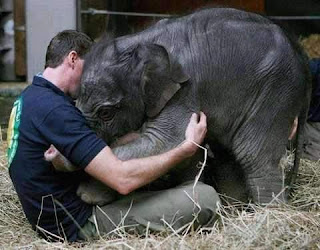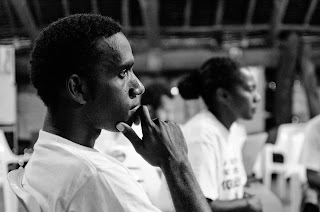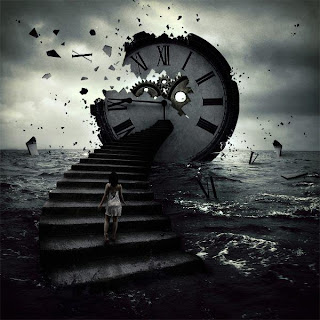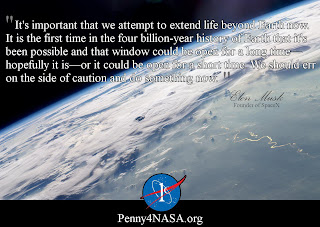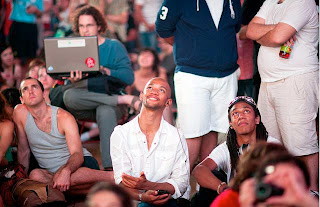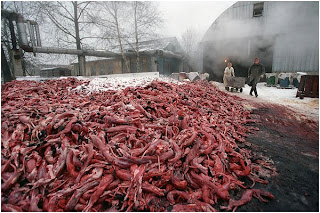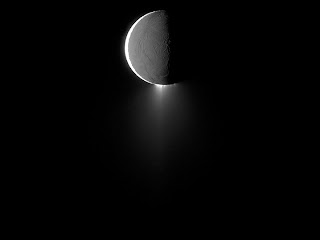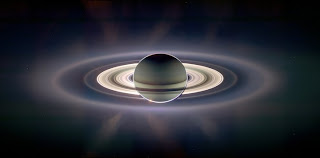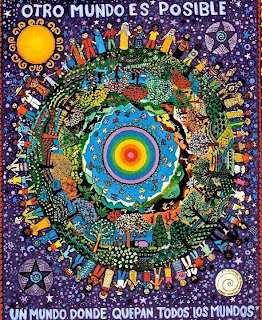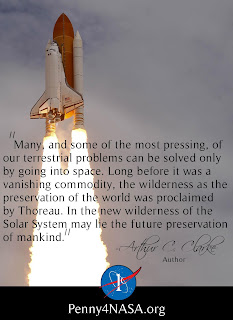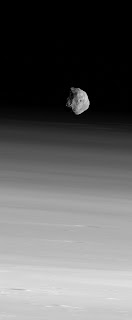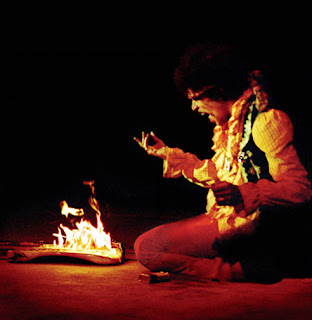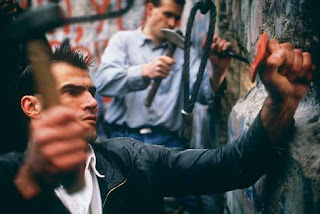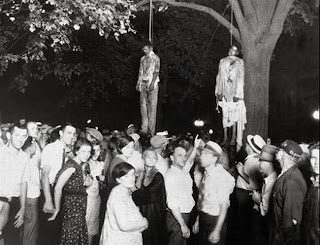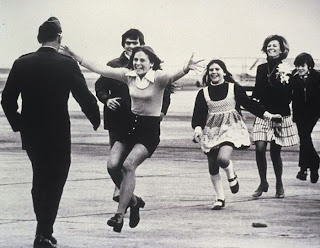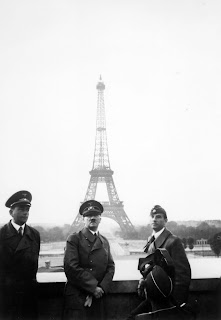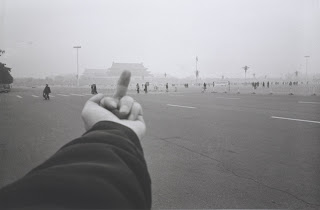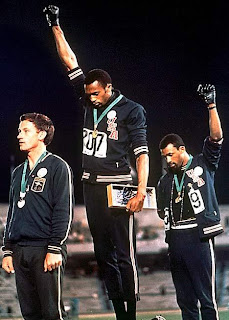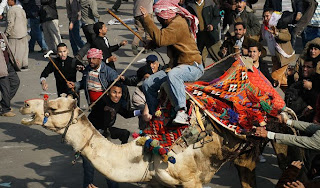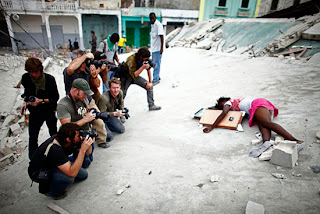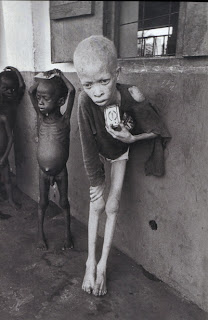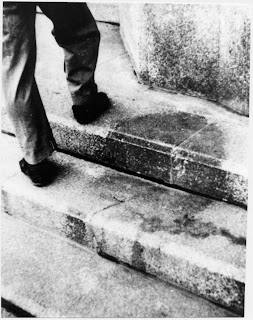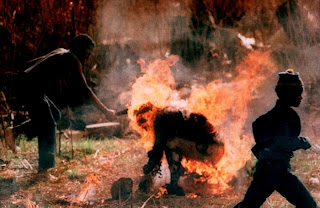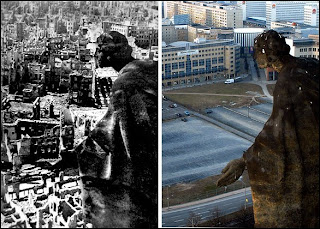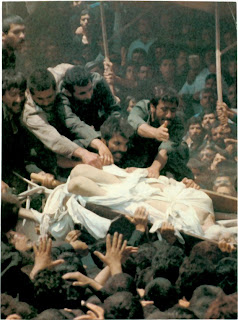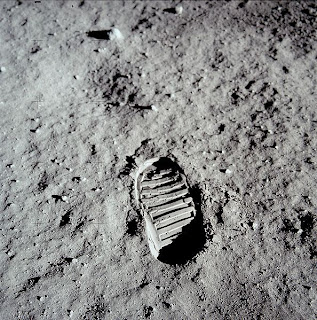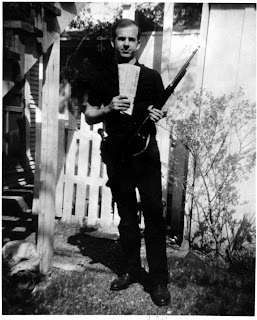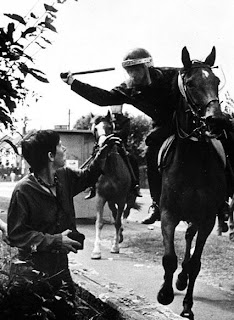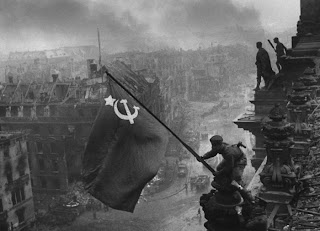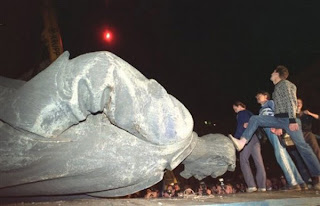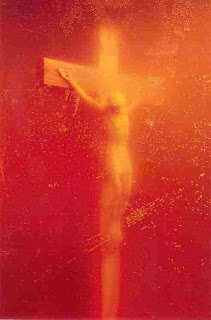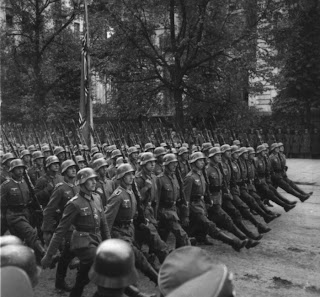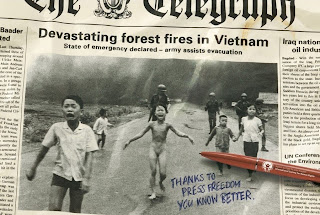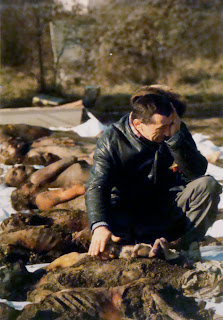when the long trick’s over.
And the suns of the limitless universe sparkled and shone in
the sky,
Flashing with fires as of God,
but we knew that their light was a lie–
Bright as with deathless hone–but, however they sparkled and
shone,
The dark little worlds running round them were worlds of woe
like our own.
Lord Alfred Tennyson, from “Despair” (1881)
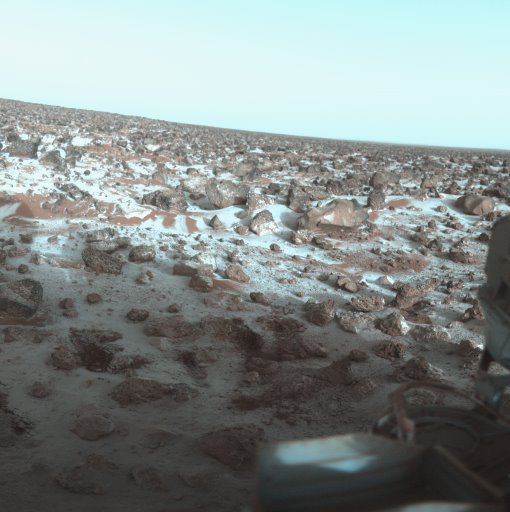
I know now the beloved
Has no fixed abode,
That each body She inhabits
Is only a temporary
Home.
That she
Casts off forms
As eagerly
As lovers shed clothes.
I accept that he’s
Just passing through
That flower
Or that stone.
And yet, it makes Me dizzy—
The way he hides
In the flow of it,
The way she shifts
In fluid motions,
Becoming other things.
I want to stop him—
If only briefly.
I want to lure her
To the surface
And catch her
In this net of words.
untitled, by Gregory Orr
Are you looking for me? I am in the next seat.
My shoulder is against yours.
You will not find me in stupas,
not in Indian shrine rooms,
nor in synagogues, nor in cathedrals:
Not in masses, nor kirtans,
not in legs winding around your own neck,
not in eating nothing but vegetables.
When you really look for me, you will see me instantly –
you will find me in the tiniest house of time.
Kabir says: “Student, tell me, what is God?”
It is the breath inside the breath.
Kabir, translated by Robert Bly
The breath of Dawn’s musk-strewing wind shall blow,
The ancient world shall turn to youth again,
And other wines from out Spring’s chalice flow;
Wine-red, the judas-tree shall set before
The pure white jessamine a brimming cup,
And wind flowers lift their scarlet chalice up
For the star-pale narcissus to adore.
The long-drawn tyranny of grief shall pass,
Parting shall end in meeting, the lament
Of the sad bird that sang “Alas, alas!”
Shall reach the rose in her red-curtained tent.
Forth from the mosque! the tavern calls to me!
Would’st hinder us? The preacher’s homily
Is long, but life will soon be spent!
Ah, foolish Heart! the pleasures of today,
If you abandon, will tomorrow stand
Your surety for the gold you’ve thrown away?
In Sha’aban the troops of grief disband,
And crown the hours with wine’s red coronet–
The sun of merriment before long will set,
And meagre Ramazan is close at hand!
Dear is the rose–now, now her sweets proclaim,
While yet the purple petals blush and blow;
To here down the path of spring she came,
And by the path of autumn she will go.
Now, while we listen, minstrel, tune lay your tune!
Yourself has said: “The present steals away
The future comes, and bringing–what? You know?”
Summoned by your melody did Hafez rise
Out of the darkness near your lips to dwell;
Back to the dark again his pathway lies–
Sing out, sing clear, and singing cry: Farewell!
Gertrude Bell translation
Come, gentle night, come, loving, black-brow’d night,
Give me my Romeo; and, when he shall die,
Take him and cut him out in little stars,
And he will make the face of heaven so fine
That all the world will be in love with night
And pay no worship to the garish sun.
Romeo and Juliet: Act 3, Scene 2, Shakespeare
Between living and dreaming
…there is a third thing.
Guess it.
Antonio Machado
translated by Robert Bly
I’d like to see the tree as it once stood
before me, childhood, the branch and leaf
a single form of transport, ecstasy
shaking my body I give to the leaves,
the leaves return, my stare all interchange.
But that was when I had a sky to name
since I had a belief in constancy
like everyone. The sky was my background,
the drama of the tree and me, one act,
then three, then five, a Shakespearean play script.
some tragic flaw in hero, heroine,
yet to be discovered.
But now the sky
clouds even dawn with a black mist that falls
from all things and all imaginings.
The tree in my backyard is caught in this.
When I look for the sky it is still there
but now a matter of my memory
or prophecy.
Where is the root, bough, stem
set clearly against a morning, clearing?
NIGHTMORNINGSKY
Peter Cooley
From out the street of So-and-So,
Oh wind, bring perfumes sweet to me
For I am sick and pale with woe;
Oh bring me rest from misery!
The dust that lies before her door,
Love’s long desired elixir, pour
Upon this wasted heart of mine–
Bring me a promise and a sign!
Between the ambush of mine eyes
And my heart’s fort there’s enmity–
Her eye-brow’s bow, the dart that flies,
Beneath her lashes, bring to me!
Sorrow and absence, glances cold,
Before my time have made me old;
A wine-cup from the hand of Youth
Bring me for pity and for truth!
Then shall all unbelievers taste
A draught or two of that same wine;
But if they like it not, oh haste!
And let joy’s flowing cup be mine.
Cup-bearer, seize to-day, nor wait
Until to-morrow!–or from Fate
Some passport to felicity,
Some written surety bring to me!
My heart threw back the veil of woe,
Consoled by Hafez’s melody:
From out the street of So-and-So,
Oh wind, bring perfumes sweet to me!
Gertrude Bell translation
“O Beloved, why do you treat us this way?
For too long we have been ignored and deprived of Your light.”
Pilgrim, listen to my pen’s advice, for this pearl of wisdom
is worth more than all your suffering or gold.
O Winebringer, bring wine to those drinkers who are mad for more wine.
That is, if You have any of last night’s good wine left.
But I want to know how are You going to show us Your face,
with the light of the sun and moon reflecting in our eyes?
O philosopher, be sensible and don’t speak out against love.
Have you some contention to pick with God?
Aren’t you at all afraid of my burning sigh,
Standing there in that cotton coat so close to the flames?
Hafez, yours is the most beautiful verse I have ever heard.
You must have the Koran and the Bible in your heart combined
“Listen to My Pen’s Advice” translated by Thomas Rain Crowe
Comet Hyakutake’s tail stretches for 360 million miles—
in 1996, we saw Hyakutake through binoculars—
the ion tail contains the time we saw bats emerge out of a cavern at dusk—
in the cavern, we first heard stalactites dripping—
first silence, then reverberating sound—
our touch reverberates and makes a blossoming track—
a comet’s nucleus emits X-rays and leaves tracks—
two thousand miles away, you box up books and, in two days, will step through the
invisible rays of an airport scanner—
we write on invisible pages in an invisible book with invisible ink—
in nature’s infinite book, we read a few pages—
in the sky, we read the ion tracks from the orchard—
the apple orchard where blossoms unfold, where we unfold—
budding, the child who writes, “the puzzle comes to life”—
elated, puzzled, shocked, dismayed, confident, loving: minutes to an hour—
a minute, a pinhole lens through which light passes—
Comet Hyakutake will not pass earth for another 100,000 years—
no matter, ardor is here—
and to the writer of fragments, each fragment is a whole—
“Comet Hyakutake”
Arthur Sze
When geometric diagrams and digits
are no longer the keys to living things,
when people who go about singing or kissing
know deeper things than the great scholars,
when society is returned once more
to unimprisoned life, and to the universe,
and when light and darkness mate
once more and make something entirely transparent,
and people see in poems and fairy tales
the true history of the world,
then our entire twisted nature will turn
and run when a single secret word is spoken.
Novalis

Yet is this mighty system, which contains
So many worlds, such vast etherial plains,
But one of thousands, which compose the whole,
Perhaps as glorious, and of worlds as full.
All these illustrious worlds, and many more,
Which by the tube astronomers explore:
And millions which the glass can ne’er descry,
Lost in the wilds of vast immensity;
Are suns, are centres, whose superior sway
Planets of various magnitudes obey.
As this inferior habitable seat
By different parts is made one whole complete;
So our low world is only one of those,
Which the capacious universe compose.
Now to the universal whole advert;
The Earth regard as of that whole a part,
In which wide frame more noble worlds abound;
Witness, ye glorious orbs, which hang around,
Ye shining planets, that in ether stray.
And thou, bright lord and ruler of the day!
Witness, ye stars, which beautify the skies,
How much do your vast globes, in height and size,
In beauty and magnificence, outgo
Our ball of Earth, that hangs in clouds below!
Between yourselves, too, is distinction found,
Of different bulk, with different glory crown’d;
The people, which in your bright regions dwell,
Must this world’s low inhabitants excel;
And since to various planets they agree,
They from each other must distinguished be,
And own perfections different in degree.
We may pronounce each orb sustains a race
Of living things adapted to the place.
Were the refulgent parts, and most refine’d
Only to serve the dark and base design’d?
Were all the stars, whose beauteous realms of light,
At distance only hung to shine by night?
And with their twinkling beams to please our sight?
How many roll in ether, which the eye
Could n’er, till aided by the glass, descry;
And which no commerce with the Earth maintain!
Are all these glorious empires made in vain?
From Sir Richard Blackmore, The Creation: a Philosophical Poem in Seven Books (1712)
Now if the Sun to Earth transmits his ray,
Yet does not scorch us with too fierce a day;
How small a portion of his pow’r is giv’n
To orbs more distant, and remoter Heav’n?
And of those stars, which our imperfect eye
Has doom’d, and fix’d to one eternal sky,
Each by a native stock of honor great,
May dart strong influence, and diffuse kind heat,
Itself a sun; and with transmissive light
Enliven worlds deny’d to human sight.
Around the circles of their ambient skies
New moons may grow or wane, may set or rise;
And other stars may to those suns be earths;
Give their own elements their proper births;
Divide their climes, or elevate their pole,
See their lands flourish, and their oceans roll;
Yet these great orbs thus radically bright,
Primitive founts, and origins of light,
May each to other (as their diff’rent sphere
Makes or their distance, or their height appear)
Be seen a nobler, or inferior star;
And in that space, which we call air and sky,
Myriads of earths, and moons, and suns may lye
Unmeasur’d, and unknown by human eye.
From Matthew Prior, Solomon on the Vanity of the World, a Poem in Three Books (1718)
From Robert Gambol, The Beauties of the Universe (1732)
These lines are typical of the view expressed by numerous poets who described
“cosmic journeys” of departed souls. The soul, Gambol says:
Unbounded in its ken, from prison free
Will clearly view what here we darkly see:
Those planetary worlds, and thousands more,
Now veil’d from human sight, it shall explore.
“And if we dare to look into those eyes, then we shall feel their suffering in our hearts. More and more people have seen that appeal and felt it in their hearts. All around the world there is an awakening of understanding and compassion, and understanding that reaches out to help the suffering animals in their vanishing homelands. That embraces hungry, sick, and desperate human beings, people who are starving while the fortunate among us have so much more than we need. And if, one by one, we help them, the hurting animals, the desperate humans, then together we shall alleviate so much of the hunger, fear, and pain in the world. Together we can bring change to the world, gradually replacing fear and hatred with compassion and love. Love for all living beings.”
Jane Goodall
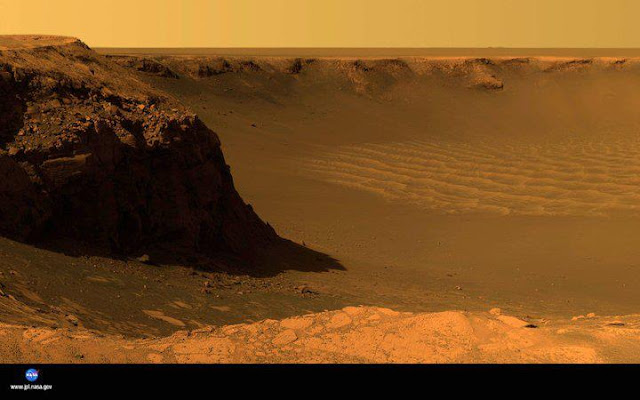
This huge rotundity we tread grows old;
And all the worlds that roll around the Sun,
The Sun himself, shall die, and ancient Night
Again involve the desolate abyss:
‘Till the Great Father thro’ the lifeless gloom
Extend his arm to light another world,
And bid new planets roll by other laws.
For through the regions of unbounded space,
Where unconfin’d Omnipotence has room,
Being, in various systems, fluctuates still
Between creation and abhorr’d decay:
It ever did, perhaps and ever will.
New worlds are still emerging from the deep;
The old descending, in their turns to rise.
From John Armstrong, The Art of Preserving Health (1744)

. . . Soul and sense diffus’d thro’ ev’ry place
Make happiness as infinite as space;
Thousands of suns beyond each other blaze,
Orbs roll o’er orbs, and glow with mutual rays;
Each is a world, where form’d with wondrous art,
Unnumber’d species live thro’ every part:
In ev’ry tract of ocean, earth,and skies,
Myriads of creatures still successive rise;
Scarce buds a leaf, or springs the vilest weed,
But little flocks upon its verdure feed;
Nor fruit our palate courts, or flow’rs our smell,
But on its fragrant bosom nations dwell,
All form’d with proper faculties to share
The daily bounties of their Maker’s care.
From Soame Jenyns, “An Essay on Virtue” (1752)
Imagination! who can sing thy force?
Or who describe the swiftness of thy course?
Soaring through air to find the bright abode,
Th’empyreal palace of the thund’ring God,
We on thy pinions can surpass the wind,
And leave the rolling universe behind,
From star to star the mental optics rove,
Measure the skies, and range the realms above,
There in one view we grasp the mighty whole,
Or with new worlds amaze th’unbounded soul.
From Phillis Wheatley, “On Imagination” (1773)
Phillis Wheatley was a young black slave, and among the first writers
in America to publish a volume of poems.
You have learned so much
and read a thousand books.
Pause to read your Self.
You have gone to mosque and temple so often,
consider once
visiting your soul.
You are busy fighting evils.
Also overcome your
own ill intentions.
You have reached to the skies, likewise
you must reach into your own secret heart.
Bab Bulleh Shah
Oh center and pivot of being, circumference of bounty,
oh fixed as the pole, and impassioned as the sphere!
I send greetings to you! You are the greeting!
And if I invoke blessings on you, you are the blessing!
How can any one give You to Yourself? Tell me now,
oh you who are your own alms-giver and your own alms!
Oh most comprehensive of manifestations,
and most perfect in manifestation,
oh gulf of gulfs and combiner of diversities!
Oh most beautiful of the beautiful,
and oh most fair of the fair,
oh most gracious of the graceful,
oh most subtle of subtleties!
You are at once the challenge and the solution,
both sorrow and joy,
both lock and key, both prison and deliverance!
You are both the treasure and the talisman,
both body and soul,
both name and named, both essence and attribute!
You are both western and west, both eastern and east,
alike throne, and carpet, and earth, and heavens, and space!
Maghribi, translated by E.G. Browne

All human beings are the members of one body –
every person is a glint,
shining from a single gem.
When the world causes pain for one member,
how could the other members
ever rest in peace?
If you lack grief
for another one’s sorry,
why call yourself
a human being?
Sa’di
translation from “Love’s Alchemy”
by David and Sabrineh Fideler
Don’t grieve. Anything you lose comes round
in another form. The child weaned from mother’s milk
now drinks wine and honey mixed.
God’s joy moves from unmarked box to unmarked box,
from cell to cell. As rainwater, down into flowerbed.
As roses, up from ground.
Now it looks like a plate of rice and fish,
now a cliff covered with vines,
now a horse being saddled.
It hides within these,
till one day it cracks them open.
Part of the self leaves the body when we sleep
and changes shape. You might say, “Last night
I was a cypress tree, a small bed of tulips,
a field of grapevines.” Then the phantasm goes away.
You’re back in the room.
I don’t want to make anyone fearful.
Hear what’s behind what I say.
Ta dum dum, taaa dum, ta ta dum.
There’s the light gold of wheat in the sun
and the gold of bread made from that wheat.
I have neither. I’m only talking about them,
as a town in the desert looks up
at stars on a clear night.
Rumi rendered by Coleman Barks with A.J. Arberry
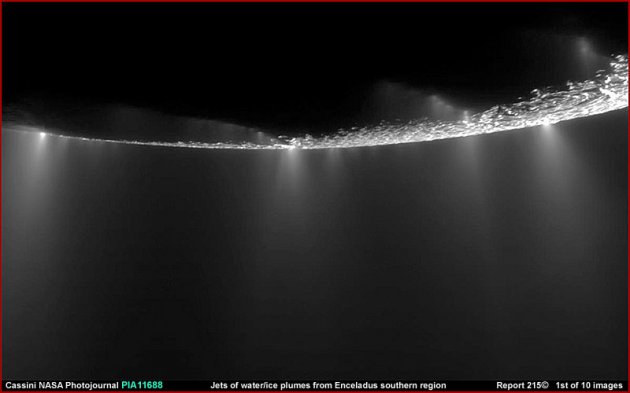
We’ve come so far, thought the astronaut
as he swam around the capsule in his third week
and by accident kicked a god in the eye
–so far
that there’s no difference anymore between up and down,
north and south, heavy and light.
And how, then, can we know righteousness.
So far.
And weightless, in a sealed room
we chase the sunrises at high speed
and sicken with longing for a green stalk
or the heft of something in our hands. Lifting a stone.
One night he saw that the Earth was like an open eye
that looked at him as gravely as the eye of a child
awakened in the middle of the night.
“Skylab”
Rolf Jacobsen
Translated by Roger Greenwald
From North in the World: Selected Poems of Rolf Jacobsen,
translated and edited by Roger Greenwald.
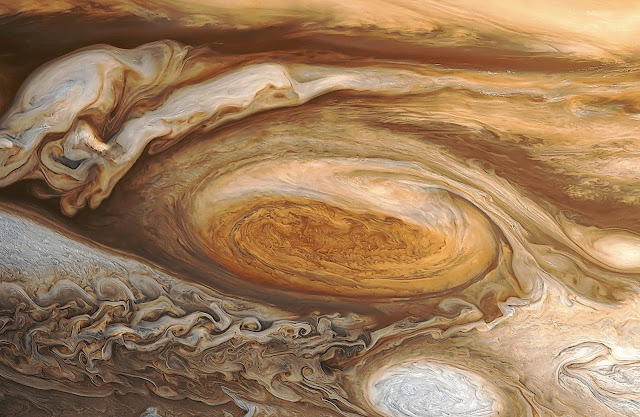
From Aerodrome Orion by Susan Gevirtz.
Going abruptly into a starry night
It is ignorance we blink from, dark, unhoused;
There is a gaze of animal delight
Before the human vision. Then, aroused
To nebulous danger, we may look for easy stars,
Orion and the Dipper; but they are not ours,
These learned fields. Dark and ignorant,
Unable to see here what our forebears saw,
We keep some fear of random firmament
Vestigial in us. And we think, Ah,
If I had lived then, when these stories were made up, I
Could have found more likely pictures in haphazard sky.
But this is not so. Indeed, we have proved fools
When it comes to myths and images. A few
Old bestiaries, pantheons and tools
Translated to the heavens years ago—
Scales and hunter, goat and horologe—are all
That save us when, time and again, our systems fall.
And what would we do, given a fresh sky
And our dearth of image? Our fears, our few beliefs
Do not have shapes. They are like that astral way
We have called milky, vague stars and star-reefs
That were shapeless even to the fecund eye of myth—
Surely these are no forms to start a zodiac with.
To keep the sky free of luxurious shapes
Is an occupation for most of us, the mind
Free of luxurious thoughts. If we choose to escape,
What venial constellations will unwind
Around a point of light, and then cannot be found
Another night or by another man or from other ground.
As for me, I would find faces there,
Or perhaps one face I have long taken for guide;
Far-fetched, maybe, like Cygnus, but as fair,
And a constellation anyone could read
Once it was pointed out; an enlightenment of night,
The way the pronoun you will turn dark verses bright.
Starlight
William Meredith
Reprinted from Effort at Speech: New and Selected Poems by William Meredith,
published by Triquarterly Books/Northwestern University Press in 1997.
Instructed ships shall sail to quick Commerce;
By which remotest Regions are alli’d:
Which makes one City of the Universe,
Where some may gain, and all may be suppli’d.
Then, we upon our Globe’s last verge shall go,
And view the Ocean leaning on the sky:
From thence our rolling Neighbors shall we know,
And on the Lunar world securely pry.
From John Dryden, Annus Mirabilis (1666)
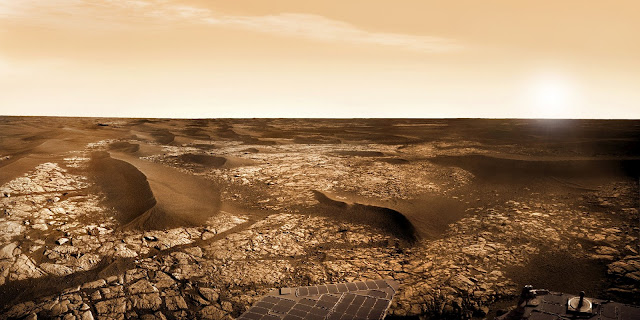
Dost thou perceive nought but machinery
In laws which guide the course along heaven’s paths?
Look with a larger view around; behold
The unity of living thoughts, displayed
In countless varying forms. The mighty sun
Is but a twinkling star amidst the space
Infinite filled with worlds, whose suns, heaven’s lamps,
Shine in our night . . . Look
Upon the spangled heav’ns, there to discover
Thousands of blazing suns, encircled by
Companions numerous . . . A race of beings behold
Struggling for mental power, knowledge divine.
From Hans Christian Oersted, “The Balloon”
reprinted in The Soul in Nature (1852)

Imagine you’re on Mars, looking at earth,
a swirl of colors in the distance.
Tell us what you miss most, or least.
Let your feelings rise to the surface.
Skim that surface with a tiny net.
Now you’re getting the hang of it.
Tell us your story slantwise,
streetwise, in the disguise
of an astronaut in his suit.
Tell us something we didn’t know
before: how words mean things
we didn’t know we knew.
Mars Poetica
Wyn Cooper
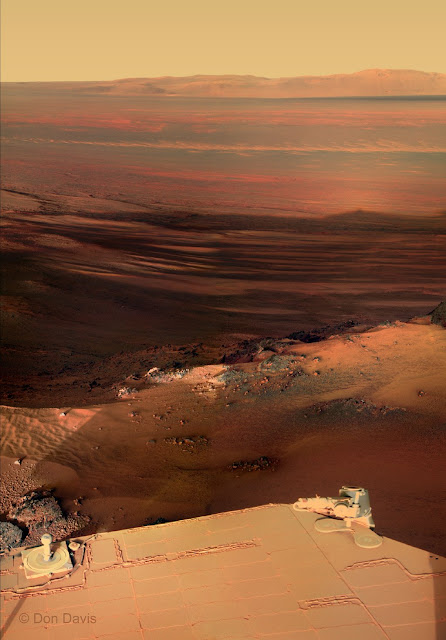
Ye glittering Stars, who float in liquid Air,
Both ye that round the Sun in different Circles move,
And ye that shine like Suns above;
Whose Light and Heat attending Planets share:
In your high Stations your Creator praise,
While we admire both him and you;
Tho’ vastly distant, yet our Eyes we raise,
And wou’d your lofty Regions view;
Those immense Spaces which no Limits know,
Where purest Aether unconfin’d doth flow;
But our weak Sight cannot such Journies go:
‘Tis Thought alone the Distance must explore;
Nothing but That to such a Height can soar,
Nothing but That can thither wing its Way,
And there with boundless Freedom stray,
And at one View ten thousand sparkling Orbs survey,
Innumerable Worlds and dazzling Springs of Light.
O the vast Prospect! O the charming Sight!
How full of Wonder, and Delight!
How mean, how little, does our Globe appear!
This object of our Envy, Toil and Care,
Is hardly seen amidst the Crowd above;
There, like some shining Point, does scare distinguish’d move.
From Lady Mary Chudleigh, “The Song of the Three Children Paraphras’d” (1703)
Fashionable ladies of the early 18th century were extremely interested in other suns and their planets, having been inspired by Fontenelle’s Conversations on the Plurality of Worlds (1686), a book specifically directed to women.
Note: Here, “liquid air” and “aether” refer to Descartes’ theory that space is filled with a fluid substance that flows into vortices, which was how the motion of planets was explained before Newton introduced the concept of gravity.
Shine on, O moon of summer.
Shine to the leaves of grass, catalpa and oak,
All silver under your rain to-night.
An Italian boy is sending songs to you to-night from an accordion.
A Polish boy is out with his best girl; they marry next month;
to-night they are throwing you kisses.
An old man next door is dreaming over a sheen that sits in a
cherry tree in his back yard.
The clocks say I must go—I stay here sitting on the back porch drinking
white thoughts you rain down.
Shine on, O moon,
Shake out more and more silver changes.
“Back Yard,” from The Chicago Poems
(Henry Holt and Company, 1916) by Carl Sandburg.
Earth at last a warless world, a single race, a single tongue–
I have seen her far away–for is not Earth as yet so young?
Every tiger madness muzzled, every serpent passion kill’d,
Every grim ravine a garden, every blazing desert till’d,
Robed in universal harvest up to either pole she smiles,
Universal ocean softly washing all her warless isles.
Warless? when her tens are thousands, and her thousands
millions, then–
All her harvest all too narrow–who can fancy warless men?
Warless? War will die out late then. Will it ever? late or soon?
Can it, till this outworn earth be dead as yon dead world the moon?
. . . . . . . . . . . .
Dead, but how her living glory lights the hall, the dune, the grass!
Yet the moonlight is the sunlight, and the sun himself will pass.
Venus near her! smiling downward at this earthlier earth of ours,
Closer on the sun, perhaps a world of never-fading flowers.
Hesper, whom the poet call’d the Bringer home of all good things–
All good things may move in Hesper, perfect peoples, perfect kings.
Hesper–Venus–were we native to that splendor or in Mars,
We should see the globe we groan in, fairest of their evening stars.
Could we dream of wars and carnage, craft and madness, lust
and spite,
Roaring London, raving Paris, in that point of peaceful light?
Might we not in glancing heavenward on a star so silver-fair,
Yearn, and clasp the hands and murmur, “Would to God that we
were there”?
Forward, backward, hackward, forward, in the immeasurable sea,
Sway’d by vaster ebbs and flows than can be known to you or me.
All the suns–are these but symbols of innumerable man,
Man or Mind that sees a shadow of the planner or the plan?
Is there evil but on earth? or pain in every peopled sphere?
Well, be grateful for the sounding watchword “Evolution” here,
Evolution ever climbing after some ideal good,
And Reversion ever dragging evolution in the mud.
What are men that He should heed us? cried the king of sacred song;
Insects of an hour, that hourly work their brother insect wrong,
While the silent heavens roll, and suns along their fiery way,
All their planets whirling round them, flash a million miles a day.
Many an aeon moulded earth before her highest, man, was born,
Many an aeon too may pass when earth is manless and forlorn,
Earth so huge, and yet so bounded–pools of salt, and plots of
land–
Shallow skin of green and azure–chains of mountain, grains of sand
Only That which made us meant us to be mightier by and by,
Set the sphere of all the boundless heavens within the human eye,
Sent the shadow of Himself, the boundless, thro’ the human soul;
Boundless inward, in the atom, boundless outward, in the Whole.
. . . . . . . . . . . .
Far away beyond her myriad coming changes earth will be
Something other than the wildest modern guess of you and me.
From Alfred, Lord Tennyson, “Locksley Hall Sixty Years After” (1886)
Sylvia Engdahl commentary: “Tennyson’s best-known poem about the future is “Locksley Hall,” in which he made some accurate prophecies concerning aviation but did not mention space. This one, written 60 years later, deals with the evolution of humans here and elsewhere, and is as relevant today as when it was first published.”
Over hundreds of aeons,
creation’s fabric
unfolded
until the beauty
of your face
blazed forth
in this world.
From the top of your head
to the tip of your toe,
subhanallah-
all praise belongs to God!
Miraculously,
It has molded you
to my very desire.
Khaqani Shirwani
Seeking life without the Friend’s presence,
you didn’t spend a moment waiting at love’s door.
My God!! Sit down and mourn your loss!
That time is gone when you could have been living!!
Fakhr al-din ‘Iraqi
Those who dwell
in the Beloved’s presence
don’t obsess on Its thought
and speak of It
even less –
but those who huff and howl
like the bellows of a bagpipe,
call for It in a loud voice
because they are far away.
Baba Afdel Kashani
Not from the stars do I my judgment pluck,
And yet methinks I have astronomy;
But not to tell of good or evil luck,
Of plagues, of dearths, or seasons’ quality;
Nor can I fortune to brief minutes tell,
Pointing to each his thunder, rain, and wind,
Or say with princes if it shall go well
By oft predict that I in heaven find.
But from thine eyes my knowledge I derive,
And, constant stars, in them I read such art
As truth and beauty shall together thrive
If from thyself to store thou wouldst convert:
Or else of thee this I prognosticate,
Thy end is truth’s and beauty’s doom and date.
Not from the stars do I my judgment pluck (Sonnet 14)
William Shakespeare
I must have gone to the doctor a hundred times,
but they’ve found nothing, no secret potion, for all my grief.
The seal on my coffin didn’t get there by itself;
it was put there by God’s enemies who plotted against Us with fear.
To all you restless roses, who have given your power away to thorns,
I say: a nightingale would never give its voice away to vultures!
O Beloved, is there no cure for our blindness?
Give us back our eyes so that we may see Your face.
O Physician, even though we have endured our pain in silence,
there is no way to hid this much agony from You.
O Friend, at this banquet You have set before us,
how long must we sit here with an empty plate?
Hafez sighs, “Please believe me, I am not a hypochondriac just making this up.
I’m sick. It’s those rich doctors who have saddled me with shame.”
Translated by Thomas Rain Crowe
Our meeting was like the upward swish of a rocket
In the blue night.
I do not know when it burst;
But now I stand gaping,
In a glory of falling stars.
Hola! Hola! shouts the crowd, as the catherine-wheels sputter and turn.
Hola! They cheer the flower-pots and set pieces.
And nobody heeds the cries of a young man in shirt-sleeves,
Who has burnt his fingers setting them off.
A King and Queen, and a couple of Generals,
Flame in colored lights;
Putting out the stars,
And making a great glare over the people wandering among the booths.
They are very beautiful and impressive,
And all the people say “Ah!”
By and by they begin to go out,
Little by little.
The King’s crown goes first,
Then his eyes,
Then his nose and chin.
The Queen goes out from the bottom up,
Until only the topmost jewel of her tiara is left.
Then that, too, goes;
And there is nothing but a frame of twisted wires,
With the stars twinkling through it.
Pyrotechnics
by Amy Lowell
You are the notes, we are the flute.
We are the mountain, you the sounds coming down.
We are the pawns and kings and rooks
you set on a board; we win, we lose.
We are lions rolling and unrolling on thin flags.
Your invisible wind carries us through the world.
Rumi
Robert Bly translation
Come, for our hopes are no more than a second-hand house:
bring wine, for life’s foundations are in the wind.
But that man’s zeal shall draw me, under which this blue ceiling
burns bring for nothing that ties us down to the world.
How can I tell you what good news the angel of the Unseen
brought me last night, flat-out on the wine shop’s floor?
“O royal keen-eyed falcon, whose perch is on the Tree of Life,
why is this corner of affliction’s town your nest?
They are whistling you home from the battlements of the Empyrean:
what could you be doing here in this place of snares?”
Take my advice, follow what I say–
this is a dictum the Master has handed down:
Don’t let the world’s ills harm you – (note this, a subtlety
from one who had traveled far upon love’s way) –
But accept whatever is dealt you – unknit your brows:
we shall find no other way out; free choice is not ours.
Don’t look to hold this tottering world to her bond:
she is the withered hag of a thousand bridegrooms.
There is no faith in the smile of the rose:
lament, impassioned nightingale; there is room for complaint.
Why should worthless poets be jealous of Hafez?
To please by subtleties of speech is the gift of God.
translated by Peter Avery and John Heath-Stubbs
Oh Turkish maid of Shiraz! in your hand
If you’ll take my heart, for the mole on your cheek
I would barter Bokhara and Samarkand.
Bring, Cup-bearer, all that is left of your wine!
In the Garden of Paradise vainly you’ll seek
the lip of the fountain of Ruknabad,
and the bowers of Mosalla where roses twine.
They have filled the city with blood and broil,
those soft-voiced Lulis for whom we sigh;
as Turkish robbers fall on the spoil,
they have robbed and plundered the peace of my heart.
Dowered is my mistress, a beggar am I;
what shall I bring her? a beautiful face
needs no jewel nor mole nor the make-up’s art.
Brave tales of singers and wine relate,
the key to the Hidden is vain to seek;
no wisdom of ours has unlocked that gate,
and locked to our wisdom it still shall be.
But of Joseph’s beauty the lute shall speak;
and the minstrel knows that She came forth,
Love parting the curtains of modesty.
When your spoke ill of your servant, well—
God pardon you! for your words were sweet;
not unwelcomed the bitterest answer fell
from lips where ruby and sugar lay.
But, fair Love, let good counsel direct your feet;
far dearer to youth than dear life itself
are the warnings of one grown wise—and grey!
The song is sung, the pearl is strung
Come here, oh old Hafez, sing again!
The listening Heavens above you hung
shall loose over your verse the Pleiades’ chain.
Gertrude Bell translation
Do not say that I’ll depart tomorrow
because even today I still arrive.
Look deeply: I arrive in every second
to be a bud on a spring branch,
to be a tiny bird, with wings still fragile,
learning to sing in my new nest,
to be a caterpillar in the heart of a flower,
to be a jewel hiding itself in a stone.
I still arrive, in order to laugh and to cry,
in order to fear and to hope.
The rhythm of my heart is the birth and
death of all that are alive.
I am the mayfly metamorphosing on the surface of the river,
and I am the bird which, when spring comes, arrives in time
to eat the mayfly.
I am the frog swimming happily in the clear pond,
and I am also the grass-snake who, approaching in silence,
feeds itself on the frog.
I am the child in Uganda, all skin and bones,
my legs as thin as bamboo sticks,
and I am the arms merchant, selling deadly weapons to
Uganda.
I am the twelve-year-old girl, refugee on a small boat,
who throws herself into the ocean after being raped by a sea
pirate,
and I am the pirate, my heart not yet capable of seeing and
loving.
I am a member of the politburo, with plenty of power in my
hands,
and I am the man who has to pay his “debt of blood”
to my people
dying slowly in a forced labor camp.
My joy is like spring, so warm it makes flowers bloom in all
walks of life.
My pain is like a river of tears, so vast it fills the four oceans.
Please call me by my true names,
so I can hear all my cries and laughs at once,
so I can see that my joy and pain are one.
Please call me by my true names,
so I can wake up,
and so the door of my heart can be left open,
the door of compassion.
by the Vietnamese Buddhist monk and peace activist Thich Nhat Hanh
Twinkle, twinkle, little star,
How I wonder what you are,
Up above the world so high,
Like a diamond in the sky.
When the blazing sun is set,
And the grass with dew is wet,
Then you show your little light,
Twinkle, twinkle, all the night.
Then the traveler in the dark
Thanks you for your tiny spark,
He could not see where to go
If you did not twinkle so.
In the dark blue sky you keep,
And often through my curtains peep,
For you never shut your eye
Till the sun is in the sky.
As your bright and tiny spark
Lights the traveler in the dark,
Though I know not what you are,
Twinkle, twinkle, little star.
The Star
Jane Taylor
When he turns fifteen, you’ll be fifty-four.
When he turns thirty, you’ll be sixty-nine.
This plain arithmetic amazes more
than miracle, the constant difference more
than mere recursion of father in son.
If you reach eighty, he’ll be forty-one!
The same sun wheels around again, the dawn
drawn out and hammered thin as a copper sheet.
When he turns sixty you’ll be gone.
Compacted mud, annealed by summer heat,
two ruts incise this ghost-forsaken plain
and keep their track width, never to part or meet.
Fixed Interval
by Devin Johnston
Forget the suffering
You caused others.
Forget the suffering
Others caused you.
The waters run and run,
Springs sparkle and are done,
You walk the earth you are forgetting.
Sometimes you hear a distant refrain.
What does it mean, you ask, who is singing?
A childlike sun grows warm.
A grandson and a great-grandson are born.
You are led by the hand once again.
The names of the rivers remain with you.
How endless those rivers seem!
Your fields lie fallow,
The city towers are not as they were.
You stand at the threshold mute.
“Forget”
By Czeslaw Milosz
(1911 – 2004)
English version by Robert Hass
The rose has flushed red, the bud has burst,
drunk with joy is the nightingale
Hail Sufis! lovers of wine, all hail!
For wine is proclaimed to a world athirst.
Like a rock your salvation seemed to you;
behold the marvel! of what avail
was your rock, for a goblet has cleft it in two!
Bring wine for the king and the slave at the gate
alike for all is the banquet spread,
and drunk and sober are warmed and fed.
When the feast is done and the night grows late,
the second door of the tavern gapes wide,
the low and the mighty must bow their heads
beneath the archway of Life, let’s meet outside.
Only if our road passes through affliction,
may we reach the destination of joy.
God’s treaty: am I not Designer of the earth?
Humans seal with a sigh: ah yes, alas.
Neither with ‘Is’ nor ‘Is Not’ let your mind contend
rest assured all perfection of mortal birth
in the great ‘Is Not’ at the last shall end.
For pomp and the feathered steeds of wind,
the speech of birds have fled downwind,
Who that was lord of them all is denied;
of such mastery nothing remains behind.
Shoot not your feathered arrow astray,
a bow-shot’s length through air has sped away,
then dropped down your feathers in the dusty way.
To you, dear Hafez, to you, oh Tongue
speaking through the mouth of a slender reed,
what thanks to you when your verses speed
from lip to lip, and all your songs are sung.
Poems from the Divan of Hafiz
translated by Getrude Lowthian Bell, 1897
Like the morning breeze, dear friend, bring good deeds
to your next day, roses of desire will open and bloom.
Go forward, advance down the road of love;
moving forward on this road, pain will always be great.
Begging at the door of winehouses creates wonderful alchemy.
If you practice this, you will soon convert dust to gold.
O heart, if only once you experience purity’s light,
like a laughing candle, abandon the life you live in your head.
But if you still yearn for cheap wine and beautiful faces,
don’t look for enlightened occupations.
Hafez, if you still listen to this good advice, remember
the road of Love and its enrichment are right around the curves.
From: Drunk on the Wind of the Beloved
Translated by Thomas Rain Crowe
I have forgotten all my learning,
but from knowing you
I have become a scholar of Love
Rumi♥
Well once upon a time, in dribs and drabs,
income turned up for me, throughout the year;
I’d dry bread and fresh herbs to hand, in case
a friend should unexpectedly appear;
And sometimes there’d be wine to drink, for when
a pretty boy or sweet young girl came here.
But now I’m getting on in years my life
has suddenly become much more austere;
I’ve neither dry to eat, nor wet to drink,
and all that’s in my house is me, my dear…
Obayd-e Zakani
(14th Century Shirazi Contemporary of Hafez)
Do not ask a monk to give you Truth’s pure gold,
he hides no riches beneath his lying face;
do not ask an alchemist whose treasure-house is bare
to teach you chemistry with a cold hearthstone.
Ask to what goal the wandering dervish moves,
those you asked to counsel you do not know his desire:
question his rags no more!
Gertrude Bell translation
Leaning into the afternoons I cast my sad nets
toward the ocean of your eyes.
There in the highest blaze my solitude lengthens and flames,
my arms turning like a drowning man’s.
I send red signals to caress your absent eyes
that smell like the sea or the beach by a lighthouse.
You harbor only darkness, my distant female,
sometimes from your regard the coast of dread emerges.
Leaning into afternoons I fling my sad nets
to that sea that is thrashed by your oceanic eyes.
The birds of night peck at the first stars
flashing like my soul when I love you.
The night gallops on its shadowy mare
shedding blue tassels over earth.
Pablo Neruda
Wild nights! Wild nights!
Were I with thee,
Wild nights should be
Our luxury!
Futile the winds
To a heart in port,
Done with the compass,
Done with the chart.
Rowing in Eden!
Ah! the sea!
Might I but moor
To-night in thee!
Emily Dickinson
My mistress’ eyes are nothing like the sun;
Coral is far more red than her lips’ red;
If snow be white, why then her breasts are dun;
If hairs be wires, black wires grow on her head.
I have seen roses damask’d, red and white,
But no such roses see I in her cheeks;
And in some perfumes is there more delight
Than in the breath that from my mistress reeks.
I love to hear her speak, yet well I know
That music hath a far more pleasing sound;
I grant I never saw a goddess go;
My mistress, when she walks, treads on the ground:
And yet, by heaven, I think my love as rare
As any she belied with false compare
Shakespeare

I loved you once: perhaps that love has yet
to die down thoroughly within my soul;
but let it not dismay you any longer;
I have no wish to cause you any sorrow.
I loved you wordlessly, without hope,
by shyness tortured, not by jealousy.
I loved you with such tenderness and candor
and pray God grants you to be loved that way again.
“I Loved You Once,” Pushkin
All jewels are made of the same gold
we give them different names.
Some call it prayer, others Namaz.
Some say Hindu, some say Muslim.
He reads the Veda, she the Qur’an.
He is a Mullah, he a pandit.
The vessels are made of the same earth.
We give them different names.
Says Kabir: the are misguided all.
God is far away from all
who waste their time
who argue and name call.
Kabir, translated by Mahmood Jamal
In love’s battlefield,
there’s another kind of combat.
There’s another kind of victory,
another kind of escape.
All those things you hear:
people crying out,
lamentations,
weeping,
moaning,
and sighing –
are only the sounds of raw desire.
Love itself
is something else.
Walah Daghistani
translated by David and Sabrineh Fideler
I swim in the Sea of Love,
tossed up and down by waves.
They lift me up at times,
at others in them I drown.
Till this Love brought me to
where there was no shore in sight…
Mansur Hallaj
Mahmood Jamal translation
I sing the body electric,
the armies of those I love engirth me and I engirth them,
they will not let me off till I go with them, respond to them,
and discorrupt them, and charge them full with the charge of the soul.
Was it doubted that those who corrupt their own bodies conceal themselves?
And if those who defile the living are as bad as they who defile the dead?
And if the body does not do fully as much as the soul? And if the body
were not the soul, what is the soul?
The love of the body of man or woman balks account, the body itself
balks account,
that of the male is perfect, and that of the female is perfect.
The expression of the face balks account,
but the expression of a well-made man appears not only in his face,
it is in his limbs and joints also, it is curiously in the joints of
his hips and wrists,
it is in his walk, the carriage of his neck, the flex of his waist
and knees, dress does not hide him,
the strong sweet quality he has strikes through the cotton and broadcloth,
to see him pass conveys as much as the best poem, perhaps more,
you linger to see his back, and the back of his neck and shoulder-side.
The sprawl and fulness of babes, the bosoms and heads of women, the
folds of their dress, their style as we pass in the street, the
contour of their shape downwards,
the swimmer naked in the swimming-bath, seen as he swims through
the transparent green-shine, or lies with his face up and rolls
silently to and from the heave of the water,
the bending forward and backward of rowers in row-boats, the
horse-man in his saddle,
girls, mothers, house-keepers, in all their performances,
the group of laborers seated at noon-time with their open
dinner-kettles, and their wives waiting,
the female soothing a child, the farmer’s daughter in the garden or
cow-yard,
the young fellow hoeing corn, the sleigh-driver driving his six
horses through the crowd,
the wrestle of wrestlers, two apprentice-boys, quite grown, lusty,
good-natured, native-born, out on the vacant lot at sundown
after work,
the coats and caps thrown down, the embrace of love and resistance,
the upper-hold and under-hold, the hair rumpled over and blinding the eyes;
the march of firemen in their own costumes, the play of masculine
muscle through clean-setting trowsers and waist-straps,
the slow return from the fire, the pause when the bell strikes
suddenly again, and the listening on the alert,
the natural, perfect, varied attitudes, the bent head, the curv’d
neck and the counting;
such-like I love–I loosen myself, pass freely, am at the mother’s
breast with the little child,
swim with the swimmers, wrestle with wrestlers, march in line with
the firemen, and pause, listen, count.
I Sing the Body Electric [excerpt]
by Walt Whitman
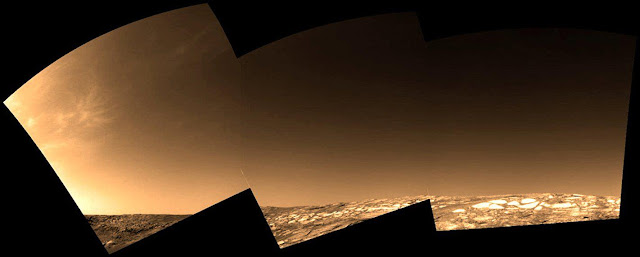
Many a hearth upon our dark globe sighs after many a
vanish’d face,
Many a planet by many a sun may roll with the dust of a
vanish’d race.
Raving politics, never at rest–as this poor earth’s pale
history runs,
What is it all but a trouble of ants in the gleam of a million
million of Suns?
From “Vastness” (1885)

‘Tis thus the skies
Inform us of superiors numberless,
As much, in excellence, above mankind,
As above earth, in magnitude, the spheres….
The soul of man was made to walk the skies;
Delightful outlet of her prison here!
There, disincumber’d from her chains, the ties
Of toys terrestrial, she can rove at large;
There, freely can respire, dilate, extend,
In full proportion let loose all her pow’rs;
And, undeluded, grasp at something great….
How distant some of these nocturnal suns!
So distant, (says the sage) ’twere not absurd
To doubt, if beams set out at nature’s birth,
Are not yet arrived at this so foreign world;
Though nothing half so rapid as their flight….
Is this the sole exploit, the single birth,
The solitary son, of Power Divine?
Or has th’ Almighty Father, with a breath,
Impregnated the womb of distant space?
Has He not bid, in various provinces,
Brother-creations the dark bowels burst
Of night primeval; barren, now, no more?…
Is not this home creation, in the map
Of universal nature, as a speck,
Like fair Britannia in our little ball;
Exceeding fair, and glorious for its size,
But, elsewhere, far outmeasured, far outshone?
In fancy (for the fact beyond us lies,)
Canst thou not figure it an isle, almost
Too small for notice, in the vast of being;
Sever’d by mighty seas of unbuilt space
From other realms; from ample continents
Of higher life, where nobler natives dwell….
On nature’s Alps I stand,
And see a thousand firmaments beneath!
A thousand systems, as thousand grains!
So much a stranger, and so late arriv’d,
How can man’s curious spirit not inquire,
What are the natives of this world sublime,
Of this so foreign, unterrestrial sphere,
Where mortal, untranslated, never stray’d?
“O ye, as distant from my little home,
As swiftest sun-beams in an age can fly!
Far from my native element I roam,
In quest of new, and wonderful, to man.
What province this, of His immense domain,
Whom all obey? Or mortals here, or gods?
Ye bord’rers on the coast of bliss! what are you?
A colony from heav’n? Or, only raised,
By frequent visit from heav’n’s neighboring realms
To secondary gods, and half divine?
Whate’er your nature, this is past dispute,
Far other life you live, far other tongue
You talk, far other thought, perhaps, you think,
Than man. How various are the works of God!
But say, What thought? Is reason here enthroned,
And absolute? or sense in arms against her?
…
Know you disease
Or horrid war? With war, this fatal hour
Europa groans (so call we a small field,
Where kings run mad.)…
With you, can rage for plunder make a god?
And bloodshed wash out ev’ry other stain?
But you, perhaps, can’t bleed: from matter gross
Your spirits clean, are delicately clad
In fine-spun ether, privileged to soar,
Unloaded, uninfected; how unlike
The lot of man! How few of human race
By their own mud unmurder’d! How we wage
Self-war eternal! Is your painful day
Of hardy conflict o’er? or, are you still
Raw candidates at school? And have you those
Who disaffect reversions, as with us?
But what are we? You never heard of man;
Or earth; the bedlam of the universe!
From Edward Young, Night Thoughts on Life, Death and Immortality (1742-1745)
Commentary by Sylvia Engdahl: “This book-length poem was extremely popular and had many editions; a 19th-century editor wrote that “It is to be seen on the shelf of the cottager with the Family Bible and Pilgrim’s Progress” and that Napoleon was said to be particularly fond of it. Hundreds of lines are relevant, though often expressed in terms of religious imagery; these excerpts are just a sample. They contain the earliest expression I’ve found of the idea that inhabitants of other worlds may be more mature (rather than simply superior) to us, and may have outgrown war.”
As I watch the bright stars shining, I think a thought of the clef
of the universes and of the future.
A vast similitude interlocks all,
All spheres, grown, ungrown, small, large, suns, moons, planets,
All distances of place however wide,
All distances of time, all inanimate forms,
All souls, all living bodies though they be ever so different, or in
different worlds,
All gaseous, watery, vegetable, mineral processes, the fishes,
the brutes,
All nations, colors, barbarisms, civilizations, languages,
All identities that have existed or may exist on this globe, or
any globe,
All lives and deaths, all of the past, present, future,
This vast similitude spans them, and always has spann’d,
And shall forever span them and compactly hold and enclose them.
From Walt Whitman, “On the Beach At Night Alone” (1856)
Who knows what myriad colonies there are
Of fairest fields, and rich, undreamed-of gains
Thick planted in the distant shining plains
Which we call sky because they lie so far?
Oh, write of me, not “Died in bitter pains,”
But “Emigrated to another star!”
From Helen Hunt Jackson, “Emigravit” (1886)
Sylvia Engdahl commentary: “This expresses an idea different from the 18th-century belief that souls would voyage through space after death merely to observe; it suggests a future life on another world, as distinguished from the traditional concept of Heaven. Although this idea is rarely talked about, there are people today who hope that they will be reincarnated on some planet elsewhere in the universe.”
He broke up the sky on the square and gave it like bread crumbs to birds.
Then he cut it in pieces and threw it to the beggars,
the crazies, the blind, and their companions.
But I got an end, smashed like a cup thrown to the ground,
lying on its back like a wounded soldier,
uncomplaining, as a harem wife
hiding her gaze behind a black veil.
The plains’ bed is spread with houses, and everyone
beneath it ages like a slave chained in bondage;
save his high-cheek-boned face.
Tensing my voice I started to refuse my free portion.
But I stayed mute, the sky’s mouth was filled with lead.
“Sky”
Anzhelina Polonskaya
Translated by Andrew Wachtel
From A Voice: Selected Poems by Anzhelina Polonskaya.
English translation by Andrew Wachtel
Now that no one looking at the night—
Sky blanked by leakage from electric lamps
And headlights prowling through the parking lot
Could recognize the Babylonian dance
That once held every gazer; now that spoons
And scales, and swordsmen battling with beasts
Have decomposed into a few stars strewn
Illegibly across an empty space,
Maybe the old unfalsifiable
Predictions and extrapolated spheres
No longer need to be an obstacle
To hearing what it is the stars declare:
That there are things created of a size
We can’t and weren’t meant to understand,
As fish know nothing of the sun that writes
Its bright glyphs on the black waves overhead.
From Invasions by Adam Kirsch.

I’m not right. I’m interfered with
and bent as light. I tried to use the spots,
for months I tried with rings.
Only now I’m thinking in cracks
that keep a modern light
lunged. I keep the porch light on
to burn you off in ghosted purls,
the licks of which filament me.
My Day-Glo tongue’s cutthroat.
Though I’m not clear,
I’m a sight whose star stares back:
it’s a new kind of dead;
it hides its death in my cinched
testicle. That bright burr makes me
unreal and itch. By the time
I’m something else, you’re making weather
with so-and-so. Drama tenants you;
it wades in queasy waves,
mottled to the marrow.
My mean streak beams neon
so I won’t be refracted
or led to reflections. My eyes
trick god’s and kick the careless reversals
of radio cure-alls. Rays suffer
until they clench the damaged night in me:
where I go out, gone as done
in a mood of black moving through.
Darkness sits there, pleased.
An iridescent ire could not go unaired,
my limbs wicking at the window.
Look out the window.
I’ve outened the world
to show you real barrenness:
a void a light
warps into want and then wants
until it warps all it glances.
From Alaskaphrenia by Christine Hume

The fires that arch this dusky dot–
Yon myriad-worlded way–
The vast sun-clusters’ gather’d blaze,
World-isles in lonely skies,
Whole heavens within themselves, amaze
Our brief humanities.
From “Epilogue” to “The Charge of the Heavy Brigade” (1885)
Tho’ world on world in myriad myriads roll
Round us, each with different powers,
And other forms of life than ours,
What know we greater than the soul?
From “Ode on the Death of the Duke of Wellington” (1852)
I was thinking this globe enough, till there sprang out so noiseless
around me myriads of other globes.
Now, while the great thoughts of space and eternity fill me, I will
measure myself by them;
And now, touch’d with the lives of other globes, arrived as far
along as those of the earth,
Or waiting to arrive, or pass’d on farther than those of the earth,
I henceforth no more ignore them, than I ignore my own life,
Or the lives of the earth arrived as far as mine, or waiting to arrive.
From Walt Whitman, “Night on the Prairies” (1860)
bloodied footprints of Rwandans trying to escape over wall
This is your hour Soul, your free flight into the wordless,
Away from books, away from art, the day erased, the lesson
done,
Your fully forth emerging, silent, gazing, pondering the
themes you lovest best,
Night, sleep, death and the stars.
About “A Clear Midnight”
Walt Whitman
This final poem in the section “From Noon to Starry Night” in the seventh edition of Leaves of Grass (1881), is, in the words of Edward Hirsch, “about releasing the soul back into the universe.” Hirsch, who has defined a poem as “a soul in action through words,” connects Whitman’s poem with the essay “The Poet” by Ralph Waldo Emerson, a mentor of Whitman’s: “Here we find ourselves suddenly, not in a critical speculation, but in a holy place, and should go very warily and reverently.”
Ten thousand worlds blaze forth; each with his train
Of peopled worlds…
.
But how shall mortal wing
Attempt this blue profundity of Heaven,
Unfathomable, endless of extent!
Where unknown suns to unknown systems rise,
Whose numbers who shall tell? stupendous host!
Sun beyond sun, and world to world unseen,
Measureless distance, unconceiv’d by thought!
Awful their order; each the central fire
Of his surrounding stars, whose whirling speed,
Solemn and silent, through the pathless void,
Nor change, nor errour knows. But, their ways,
By reason, bold adventurer, unexplor’d,
Instructed can declare! What search shall find
Their times and seasons! their appointed laws,
Peculiar! their inhabitants of life,
And of intelligence, from scale to scale
Harmonious rising and in fix’d degree;
Numerous orders, each resembling each,
Yet all diverse!
…
About me on each hand new wonders rise
In long succession; here pure scenes of light,
Dazzling the view; here nameless worlds afar,
Yet undiscover’d: there a dying Sun,
Grown dim with age, whose orb of flame extinct,
Incredible to tell! thick, vopory mists,
From every shore exhaling, dispreading slow,
And deepening shade on shade; till the faint globe,
Mournful of aspect calls in all his beams.
Millions of lives, that live but in his light,
With horror see, from distant spheres around,
The source of day expire, and all his worlds
At once involv’d in everlasting night!
From David Mallet, The Excursion: a Poem in Two Books (1728)
This poem devotes many pages to the journey of Newton’s soul through space after his death.
What’s the use
of those woolen robes
and the Sufi’s cloak?
Forget the attire
and make yourself free
of blameworthy deeds!
Wearing a woolen hat
won’t make you a Sufi.
Be humble like a dervish –
then you can wear
any cap that you please.
Saadi
I do not know what is untried and afterward;
But I know it will in its turn prove sufficient, and cannot fail.
Each who passes is consider’d–each who stops is consider’d–
not a single one can it fail
Nor anything in the myriads of spheres–nor one of the myriads
of myriads that inhabit them…
.
I open my scuttle at night and see the far-sprinked systems,
And all I see, multiplied as high as I can cipher, edge but the rim
of the farther systems.
Wider and wider they spread, expanding, always expanding,
Outward and outward, and forever outward.
My sun has his sun, and round him obediently wheels,
He joins with his partners, a group of superior circuit,
And greater sets follow, making specks of the greatest inside them.
There is no stoppage, and never can be stoppage;
If I, you, and the worlds, and all beneath or upon their surfaces,
were at this moment reduced back to a pallid float, it would not
avail in the long run;
We should surely bring up again where we now stand,
And as surely go as much farther–and then farther and farther.
A few quadrillions of eras, a few octillions of cubic leagues, do not
hazard the span, or make it impatient;
They are but parts–anything is but a part.
See ever so far, there is limitless space outside of that;
Count ever so much, there is limitless time around that.
…
This day before dawn I ascended a hill, and look’d at the crowded
heaven,
And I said to my Spirit, When we become the enfolders of those
orbs, and the pleasure and knowledge of everything in them,
shall we be fill’d and satisfied then?
And my Spirit said, No, we but level that lift, to pass and continue beyond.
…
And I say to any man or woman, Let your soul stand cool and
composed before a million universes.
From Walt Whitman, “Walt Whitman” (1855)
Do you know a name without a thing answering to it?
Have you ever plucked a rose from r, o, s, e?
You name Its name; go, seek the reality named i, t!
Look for the moon in the sky, not in the water!
If you desire to rise above mere names and letters,
make yourself free from self at one stroke.
Become pure from all attributes of self,
that you may see your own bright essence,
yea, see in your own heart the knowledge of the Prophet,
without book, without tutor, without preceptor.
Rumi, Nicholson translation
I’m Over the Moon
Brenda Shaughnessy
I don’t like what the moon is supposed to do.
Confuse me, ovulate me,
spoon-feed me longing. A kind of ancient
date-rape drug. So I’ll howl at you, moon,
I’m angry. I’ll take back the night. Using me to
swoon at your questionable light,
you had me chasing you,
the world’s worst lover, over and over
hoping for a mirror, a whisper, insight.
But you disappear for nights on end
with all my erotic mysteries
and my entire unconscious mind.
How long do I try to get water from a stone?
It’s like having a bad boyfriend in a good band.
Better off alone. I’m going to write hard
and fast into you moon, face-fucking.
Something you wouldn’t understand.
You with no swampy sexual
promise but what we glue onto you.
That’s not real. You have no begging
cunt. No panties ripped off and the crotch
sucked. No lacerating spasms
sending electrical sparks through the toes.
Stars have those.
What do you have? You’re a tool, moon.
Now, noon. There’s a hero.
The obvious sun, no bulls hit, the enemy
of poets and lovers, sleepers and creatures.
But my lovers have never been able to read
my mind. I’ve had to learn to be direct.
It’s hard to learn that, hard to do.
The sun is worth ten of you.
You don’t hold a candle
to that complexity, that solid craze.
Like an animal carcass on the road at night,
picked at by crows,
haunting walkers and drivers. Your face
regularly sliced up by the moving
frames of car windows. Your light is drawn,
quartered, your dreams are stolen.
You change shape and turn away,
letting night solve all night’s problems alone.
From Human Dark with Sugar by Brenda Shaughnessy.
Certainly
Your lover is not a Muslim
Because in our Religion of Love
There are no Muslims or Infidels
Rumi
O wayfarer
do not imagine you are the only one
traveling this path.
Since the Real is everywhere,
do not imagine It is only in mosques
and monasteries.
Do not imagine that evil served
from the hidden world
is without a share of goodness.
In a word, if you profess Divine Unity
do not any others than It.
Ibn Muhammad Hadi Rida Quli Hidayat
Lo, for I to myself am unknown,
now in God’s name what must I do?
I adore not the Cross nor the Crescent,
I am not a Giaour nor a Jew.
East nor West, land nor sea is my home,
I have kin neither with angel nor gnome,
I am wrought not of fire nor of foam,
I am shaped not of dust nor of dew.
I was born not in China afar, not in Saqsin
and not in Bulghar;
Not in India, where five rivers are,
nor Iraq nor Khorasan I grew.
Not in this world nor that world I dwell,
not in Paradise, neither in Hell;
Not from Eden and Rizwan I fell,
not from Adam my lineage I drew.
In a place beyond uttermost Place,
in a tract without shadow of trace,
Soul and body transcending
I live in the soul of my Loved One anew
Rumi, Nicholson translation
Reason said, “We live in a world
of six directions – that’s it!”
Love replied, “There is a path beyond,
and I have traveled it many times.”
Reason saw a market and set up shop,
but love trades in another currency altogether.
Rumi
rendered by David and Sabrineh Fideler
ADVICE TO LOVERS
I knew an old man at a fair
Who made it his twice-yearly task
To clamber on a cider cask
And cry to all the lovers there : –
‘Lovers of all lands and all time
Preserve the meaning of my rhyme,
Love is not kindly nor yet grim
But does to you as you to him.
Whistle, and Love will come to you :
Hiss, and he fades without a word :
Do wrong, and he great wrong will do :
Speak, and he tells what he has heard.
Then all you lovers take good heed,
Vex not young Love in thought or deed :
Love never leaves an unpaid debt,
He will not pardon, nor forget.’
The old man’s voice was kind yet loud
And this shows what a man was he,
He’d scatter apples to the crowd
And give great draughts of cider free.
Robert Graves
I find you in all these things of the world
that I love calmly, like a brother;
in things no one cares for, you brood like a seed;
and to powerful things you give immense strength.
Spirit plays such a marvelous game –
it moves through quiet parts of the world like a servant,
fingering out in roots, tapering up in trunks,
and in the treetops raising like a flower from the dead.
Rilke
The heart’s in love
with your beautiful,
drunken glance.
You are the candle –
the entire world is your fluttering mouth.
Our souls, our hearts –
you made them crazy with love.
You quickly became the home of our hearts –
and our hearts, now, are also your home.
Qasim Anwar
Fitzgerald’s response to hate mail:
. . . The clear galaxy
Shorn of its hoary lustre, wonderful,
Distinct and vivid with sharp points of light,
Blaze within blaze, an unimagin’d depth
And moon-encircled planets, wheel in wheel,
Arch’d the wan sapphire. Nay—the hum of men,
Or other things talking in unknown tongues
And notes of busy life in distant worlds
Beat like a far wave on my anxious ear.
—Alfred, Lord Tennyson, “Timbuctoo,” 1829
Sylvia Engdahl has compiled and commented upon a wonderful collection of space related poetry in
Planet-Girded Suns. While a few are incorporated into this page to further their reach, and serve as a secondary backup, please visit her site for considerably more information and additional poems:
https://www.facebook.com/sylvia.engdahl.author
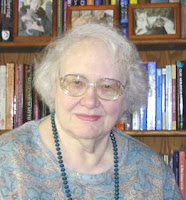
Hymn for Spacefarers
by Sylvia EngdahlO God of all the universe,
By whom all worlds were formed, whose hand
Has shaped the boundless firmament,
Whose law bids galaxies expand:
Divine Creator, unseen source
Of infinite eternal light,
We view with awe thy great design
That set the stars within our sight.O Holy Spirit, be our guide
As we pursue the endless way
That leads each generation on
To meet the challenge of its day.
As with our forebears in their task,
Be with us now as we of Earth
Turn outward to thy vaster realm
Beyond the planet of our birth.Grant wisdom, courage, strength and skill
To all who venture into space:
From peril and adversity
Safeguard them with abiding grace;
Direct their course; illuminate
The dark and empty void that lies
Between the worlds, and give them power
To see thy cosmos with clear eyes.Grant us steadfastness when some give
Their lives to fill our era’s role;
Accept, O God, their sacrifice,
And make us worthy of its goal.
Let us not falter, thou who placed
That goal before us in Earth’s youth:
Who has ordained that we should seek
New worlds, new mansions of thy truth.For in the seeking we shall turn
From strife to a new unity
Born of our common heritage;
A single people we shall be.
Thus may we face thy universe,
And through its challenge may we find
The path, as one Terrestrial race,
To lasting peace for humankind.
image archive (under construction):





